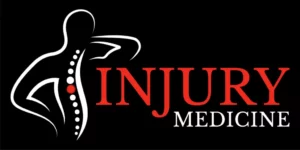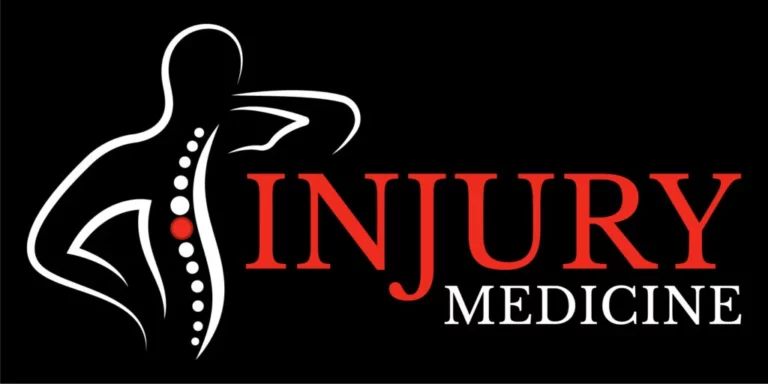The spinal discs in your back play an important role in the health of your back. These discs cushion the shock between the vertebrae. If any of the discs tears, leaks, or slips, you have a herniated disc. This can cause great back pain when it irritates a nerve, and the pain can radiate to your arms and legs.
Our back injury specialists at Injury Medicine in Spartanburg, SC, have treated hundreds of cases of herniated discs. We can recommend the best course of treatment for you so you can move about pain-free once again.
Call us today at 864-866-PAIN to schedule your herniated disc injury treatment in Spartanburg.
Factors that May Cause Herniated Discs
Your discs endure daily wearing and tearing every day. Over time, this wear and tear can cause disc fibers to develop microscopic tears and allow the soft material inside the disc to leak out. When this gel-like material touches a nerve, you will sense back pain.
Many cases of back and neck pain are often caused by herniated discs. The herniation can occur anywhere along your spine, but mostly in your neck or lower back. Some people are more at risk of developing a herniated disc, such as:
- People who have physically demanding jobs: Constant lifting, twisting, and bending of the lower back can increase stress on the spinal discs.
- Overweight people: The extra weight around the stomach area causes the back to arch more as the pelvis tilts forward. This spinal position places additional pressure on the lower back and contributes to a faster deterioration of the spinal discs.
- Genetics: A family history of disc degeneration can increase the risk of disc herniation for family members.
- Smokers: Smoking decreases the oxygen level in the blood and limits blood circulation to the spinal discs. If the discs are not nourished adequately, they start to degenerate and have a higher risk of tearing.
Symptoms of a Herniated Disc
Although you can have a herniated disc without symptoms, these are the most common signs:
- Back pain that is throbbing or dull.
- Your back might feel stiff or spasm.
- Pain in your arm or leg. If your herniated disk is in your neck, you will generally feel a burning pain in your arm and shoulder when you move in a certain direction or when you sneeze or cough. If the herniated disc is in your lower back, you will likely feel pain in your buttocks that can radiate to your thigh, calf, and foot. Pain is sharp and searing.
- Numbness, tingling, or weakness in the body areas served by the nerves affected by the herniated disc.
- Pain that gets worse if you move. Pain can occur after you walk a short distance or after a long period of sitting or standing. Pain also gets worse if you bend forward at your waist or hunch forward.
Treatment Options for a Herniated Disc
We offer a range of therapies for herniated disc injury treatment in Spartanburg.
Medication Management
Over-the-counter medicines include acetaminophen and NSAIDs such as aspirin, ibuprofen, or naproxen. If something stronger is needed, prescription medicines include stronger NSAIDs, oral steroids, muscle relaxants, and opioids.
Radiofrequency Ablation (Lumbar Spine/Cervical Spine)
This is a minimally-invasive procedure that uses an electric current to heat the precise nerve tissue to interfere with the pain signals that it is sending. The area of the nerve tissues is anesthetized, and a small electrode is injected and positioned in the precise area. The electrode heats the nerve and stops the pain signals. After the procedure, you can go home the same day.
Injections & Nerve Blocks
Various types of injections are available for back pain management. We can determine which ones are the most effective for you.
During a nerve block, a medication is injected near the spine and stops the spinal nerves from sending pain signals.
Spinal Cord Stimulator
A spinal cord stimulator sends an electrical pulse to the nerves and disrupts the pain signal. The stimulator is implanted in your skin or in the spinal cord or connected to nerves. You have the ability to control the stimulation.
Orthopedic Surgery
If other treatments aren’t successful, orthopedic surgery may be an option. A procedure called microdiscectomy can remove the herniated part of the spinal disc under the nerve root. This removes the pressure on the nerve, and the nerve can heal properly.
Kyphoplasty
Kyphoplasty is a type of minimally invasive surgery used for nerve compression caused by a fractured vertebra. A balloon is first inserted into the fracture to expand the space before the cement is added. The cement quickly hardens and acts like an internal cast.
Chiropractic Adjustments
After a thorough evaluation, if chiropractic adjustments are appropriate, we can determine the ideal methods to move the disc away from the nerve to relieve the compression.
Rehabilitation Exercises
After the appropriate treatment and a recovery period, we can design an exercise regimen for you to help prevent further injury and pain. The physical rehabilitation exercises can increase circulation to your spine, strengthen the muscles that support your spine, reduce stress on your spine, and improve your posture to prevent abnormal compression of the spine.
We Can Work With Your Workers’ Compensation Lawyer
If you were injured on the job and are represented by a workers’ compensation lawyer, we can work with your attorney to provide all the documentation relating to your diagnosis and treatment so your treatment costs can be covered by your insurance.
Get Expert Herniated Disc Injury Treatment in Spartanburg!
If you have a herniated disc, you do not have to suffer the pain. We have many treatment options available, and we can identify the ones that are the most appropriate for you. Don’t let back pain interfere with your enjoyment of life. Call Injury Medicine today at 864-866-PAIN and make an appointment for a consultation and examination. We are here to help you take the first step on your journey to recovery.


